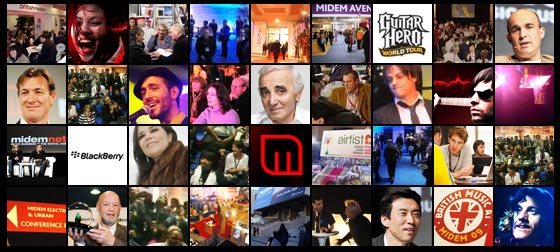I am pretty angry, America (OK, American government; that is)! What on earth are you doing? (oh, and hello, NSA, thanks for checking in).
Let me open with Plato (Laws):
“Where the law is subject to some other authority and has none of its own, the collapse of the state, in my view, is not far off; but if law is the master of the government and the government is its slave, then the situation is full of promise and men enjoy all the blessings that the gods shower on a state.”
Those were the days, huh? Shame…
Daddy is Cheating…
You know, I have suspected for some time. But I didn’t want to believe. Lipstick on your collar? Hey, there’s a good explanation, right? Right? But now I saw you with that other girl. And, you know, she wasn’t even the gorgeous blonde where I might have grumbled but acknowledged that she’s pretty hot (sorry for the outdated simile, ladies). But what I am looking at is greed, suspicion, police state perversion. And that is not good!
So now the scene is set, let’s go. You see, I have been a loyal friend for decades. I have been working with your companies, furthered your wealth in the process, befriended your people. I am a fan of your forefathers (Jefferson and Lincoln count amongst my biggest heroes) and I defended your values (and, believe me, the latter wasn’t always easy, what with all that Bush, gun-slinging, death-penalty stuff that is often not easy to understand to Europeans). Other than being atheist, I think I’d fit (or would have fitted) right in with you (even though I’d order smaller burgers).
NSA Dragnets
And now this! So, you have been running huge dragnets, it seems (never mind the details, I will leave those to Michael Arrington); by the looks of it even the most rose-tinted version is pretty nasty).
And you also have the audacity to say that a secret court to which I cannot appeal is sufficient legal oversight. And the President (yes, I am looking at you, Mr Nobel Peace Price-winning Obama) doesn’t even dare to crawl out of his White House to defend this (being humbled wasn’t enough, it seems; you should have acted upon it!).
And then, quite besides the scale of this alone, you find it perfectly OK to just about capture everything from everyone who doesn’t happen to hold a US passport. Never mind if she has shown to be a friend of yours or not. Earthlings of a lower class we are then. You basically declare war on everyone else (because that is really what you do, right? It is OK to spy on people even to further the US cause; given your tight language these days, I take it this includes industrial espionage; I mean you were on it for a while, no?).
So, let me break this down: for me as a European (although, as far as I understand, I might as well be a war-mongering nutcase of Klingon origin), you do not think I should be afforded any rights – and not even think of the rule of law or access to courts or any such fancy stuff? Further, even as it concerns your own people, you still think secret courts to which no one can appeal and that do not publish their opinions, that have none of the “checks and balances” that made your system famous are sufficient? Are you kidding me? Have you all – after all – inhaled and, for that matter, way too much?
Friends don’t Matter
This is to the first point: So you, America, think that no one other than you matters. Friend or foe – no difference. I find this appalling. What do you think this will get you? More friends? More visitors that hatch nasty plans for your downfall? Probably the latter. You know, I do not wish you bad. But I am not sure if I will be as motivated to go out of my way the next time. Don’t you know we live on a globe (as in global – get it?) with many people and regimes that require a certain amount of goodwill, trust and – for goodness sake – decency? What do you think? That we will just swallow shallow press releases referring to dubious “we acted within the law” statements? Whose laws? Who is overseeing those? Who is testing you? Who is checking your power? Where, oh where is due process?
You see, the American constitution is a blueprint for law students all over the world because it introduced the principle that the various powers within a state need to be checked and balanced against each other. They must not bloody collude to provide some lop-sided monster! Wake up! How can it be that not vast majorities of your lawmakers are up in arms over this? How can it be that this gentle, inclusive dream of a President (yes, we all loved you very much, Mr Obama) hides behind, I don’t know what. How can it be that he not only simply carried on but – apparently (I trust the Guardian more than your press releases, Mr President) – extended this highly doubtful grip on the world’s information? How could you have drifted away so far from the path of the righteous and right? I am horrified!
I live near Manchester. That is in the UK. We have an Abraham-Lincoln-Square there. And in the middle of it is a statue of the great man with a facsimile of the letter he wrote to the workers over here. Because they suffered when America fought for its independence. And Lincoln was grateful. Mr Obama, you failed! You don’t write thank-you-letters. You’d rather read our letters and try to extract as much information as you possibly can to further whatever cause it is you are pursuing. Shame on you!
Secret Courts, Habeas Corpus & Due Process
Now then, let’s knuckle down a bit. One of the pre-eminent rights that define the pride of the US Constitution is the right to due process. Would I first have to travel to the US, get myself arrested to be able to cry habeas corpus? If this your understanding of it, make yourself acquainted with the “effet utile” or direct effect: a law (or indeed the constitution) should be interpreted such that it gives direct effect. It is – if you need a reminder – related to your very own Implied Powers doctrine. And you are now saying that this only applies to US citizens? Oh, hang on, you do. You signed the treaty but did not ratify as you
consider[…] many of the provisions of the Vienna Convention on the Law of Treaties to constitute customary international law on the law of treaties (source)
What the bloody f***? Get yourself some lawyers that think straight rather than trying to exploit every friggin’ loophole, will you? You consider it customary but don’t ratify? Huh? I’ll have some fun in that court…
What would you say if your citizens in the UK, Germany, Italy, France, Spain, etc. were being denied due process? You’d be howling. How dare we? And you? Do not give a flying [you get it].
So listen: a secret court is something for oppressive regimes, for states that have nasty stuff to hide, for the folks that you are so trigger-happy to pursue. They are NOT for enlightened democracies. Change it! Now!
The dichotomy between Sharing and Transparency is NONE
You know, I happily share stuff, I really do. I know Google scans my e-mails for keywords to serve me the “right” AdWords (it fails more often than not). That’s fine. You know why? Because they told me. It’s transparent. And that (Google and all you others, are you listening?) is the word! I am a little more suspicious about the moral compass of Mr Zuckerberg, but, hey, I’m in for the right. The thing though is this: the “contrat social” (that’s French, and, no, it’s not communist) in the digital world is one of reciprocity when it comes to being transparent. Tell me what you want to do so I can decide if I will take you up on your offer. Spying and dragnets are not included in this definition! Not by one bit (get it?)!
Your behaviour – and the obscene ignorance to the present day you show whilst displaying it – does also highlight the antiquity of ancient laws (you know that your own spying law dates from 1917, right?) when it comes to digital communications. So let’s get this straight: I use the services of Google, Facebook, Skype Apple, Amazon and Microsoft and, rarely (I’m a little old, you see), YouTube (I don’t use the others – and hadn’t even heard of PalTalk before the Guardian/Washington Post revelations). And that’s perfectly fine. I know they collect data. Because, you know, we all know they’ve got to live and there’s this great big network thing going on with ads and stuff; that’s OK. Now, am I in any way related to the US? Not really, right? I mean: I have visited but never lived there. I am working with Americans in various ways (this is not a bad thing, right?). But to treat me as a subject because my domain happens to be hosted stateside (which I guess it is), because I happen to use the above services is, frankly, ludicrous. It is like establishing an exclusive jurisdiction in China for owners of iPhones. Because, you know, that is where they actually are built. And you don’t even blink? Shame on you! Is this where your great big dream descended to? Good Lord, this is sad – and, of course, scary.
What do you want me (and all us 6.5 billion non-US-Americans) to do? Stop using the “nasty 9” plus DropBox, Evernote, Twitter, Instagram and everyone else because, you know, it can only be a matter of time before you haul them in, too? That’s great. Just great! I suspect you really believe you’ll get away with it, right? And the worst thing is that you probably will. But you haven’t understood a thing.
This is not what this was set up for. A good society – and the digital one is built on this very concept – is based on concepts of trust and reciprocity. Your cold-war antics don’t fit into this. They won’t help either. Don’t you realise that stuff gets worse, not better, the more you behave like a rogue state? You won’t be winning like this! And that would be sad. Because that was one cool dream you had!
You, America, are – can I say it? – getting paranoid about way too much stuff, America, and it spoils your good looks, you know. The country where milk and honey flows, the place where the grass is greener starts looking aged and not so bright anymore. Ruthless and reckless you appear more often these days. This is not good. Because, you know, I’d like to like you again. Your recent behaviour doesn’t do you any good whatsoever. And you, Mr President, have a whole lot of work to do to win me back!
Bad day!
PS: BlackBerry did not endorse this message. As for everything (but particularly on this post), this is my very own and personal anger…
PPS: To my American friends: you know I still love you! 🙂

 It was an eventful week but I shall pick
It was an eventful week but I shall pick From Google’s and Admob’s respective business perspectives, it appears to make eminent sense, too (and I am not privy to their numbers): Admob will be able to bulk up and cement its leadership position in the segment. Its inventory and back-end ad management will be able to dip into Google’s vast resources, which is great for them. Google probably realized that Admob’s strength meant that they would be difficult to beat. And who you can’t beat, you shall join (or, in Google’s case, buy) them. For Google, it is a smart move as it gives them critical mass in an ad format where they have not nearly been as dominant as for other formats and gives them access to a lot of eyeballs.
From Google’s and Admob’s respective business perspectives, it appears to make eminent sense, too (and I am not privy to their numbers): Admob will be able to bulk up and cement its leadership position in the segment. Its inventory and back-end ad management will be able to dip into Google’s vast resources, which is great for them. Google probably realized that Admob’s strength meant that they would be difficult to beat. And who you can’t beat, you shall join (or, in Google’s case, buy) them. For Google, it is a smart move as it gives them critical mass in an ad format where they have not nearly been as dominant as for other formats and gives them access to a lot of eyeballs. It seems to be music week this week: Apple running its somewhat
It seems to be music week this week: Apple running its somewhat  Forrester was kind enough to let me have a glance at the report, so let me dive into its revelations and the underlying rationales, which starts off with looking at the broken model of the industry: in (latter part of) the 20th century, the music industry was mainly fueled by record sales (first vinyl, then CD). With the introduction of digital media and, in particular, ubiquitous broadband connectivity in many parts of the world, it shifted to digital downloads. Unfortunately, it mainly shifted for downloads that people did not pay for. iTunes has only taken a piece of the action. And iTunes’ ¢99 per song model has then contributed to people no longer buying whole albums but only the songs they like most, which somewhat squashes profitability.
Forrester was kind enough to let me have a glance at the report, so let me dive into its revelations and the underlying rationales, which starts off with looking at the broken model of the industry: in (latter part of) the 20th century, the music industry was mainly fueled by record sales (first vinyl, then CD). With the introduction of digital media and, in particular, ubiquitous broadband connectivity in many parts of the world, it shifted to digital downloads. Unfortunately, it mainly shifted for downloads that people did not pay for. iTunes has only taken a piece of the action. And iTunes’ ¢99 per song model has then contributed to people no longer buying whole albums but only the songs they like most, which somewhat squashes profitability. Nothing wrong, you say? No, it is not. However, “deploying functionality” is way short of what is needed to build social value. What makes a community? Emphatic engagement with fans, not a set of tools that sits somewhere on the various sites and offerings being operated by some far-away call center. Whilst the principle is right, the suggested execution remains a little shallow. Forums & networks is all they have to offer. Hm. Everyone has them already, so will this work?
Nothing wrong, you say? No, it is not. However, “deploying functionality” is way short of what is needed to build social value. What makes a community? Emphatic engagement with fans, not a set of tools that sits somewhere on the various sites and offerings being operated by some far-away call center. Whilst the principle is right, the suggested execution remains a little shallow. Forums & networks is all they have to offer. Hm. Everyone has them already, so will this work? Mobile is in the premium tier (with very few others): Forrester believes that carriers’ and OEM’s efforts, investment and – last but certainly not least – billing relationships merit this. I would suggest that the eye-opener ringtone where one could charge huge premiums for monophonic (!) 20-second-loops would contribute to this conviction, too.
Mobile is in the premium tier (with very few others): Forrester believes that carriers’ and OEM’s efforts, investment and – last but certainly not least – billing relationships merit this. I would suggest that the eye-opener ringtone where one could charge huge premiums for monophonic (!) 20-second-loops would contribute to this conviction, too. That sounds awesome but how do you create it? The starting point needs to be the relationship between artist and fan. I have long held that this bond is more than actual musical tastes; it is a lifestyle decision, which is why fans crave to belong to “their” artists’ circles. As early as 2002, a
That sounds awesome but how do you create it? The starting point needs to be the relationship between artist and fan. I have long held that this bond is more than actual musical tastes; it is a lifestyle decision, which is why fans crave to belong to “their” artists’ circles. As early as 2002, a 




